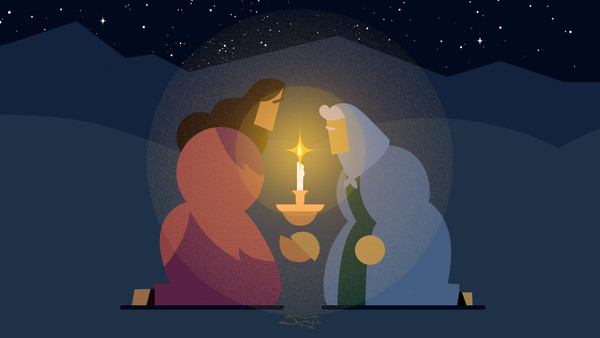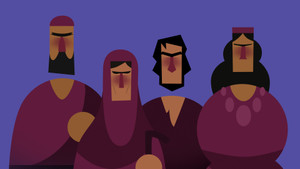

Loyal Love
The Hebrew word “khesed” is one of the most common descriptions of God in the Hebrew Bible, and it’s almost impossible to translate into any other language! This word combines the ideas of love, loyalty, and generosity. Meditating on the meaning of this word can shape our understanding of God’s character.
Reflect
The Hebrew word “khesed” combines the ideas of unconditional love, generosity, and enduring commitment. Read Psalm 136 aloud in your group, with each person using a different translation if possible. How do various translations help you understand the rich meaning of God’s forever enduring khesed?
Read Ruth 1:5-19. How does Ruth show khesed to her mother-in-law? How does this example support your understanding of what it means that God has khesed for us?
Titus 3:4-7 gives us a good picture of God's loyal love at work in our world. In this passage, what does it look like when God’s loving character appears?
God’s loyal love internally motivates Jesus’ followers to generously share what they’ve been given. What do you think it means for God’s love to be inside of a person (see 2 Corinthians 5:14; John 15:9-13; 1 John 4:16)? How does God’s love affect our actions toward those in need (e.g. 1 John 3:16-18)?
Take time to discuss other themes or key takeaways from what you read together.
Keep Exploring
Downloads
Next Episode

Episode 6
Faithful
Character of God Word Studies

Episode 1
Visual Commentary: Exodus 34:6-7

Episode 2
Compassion

Episode 3
Grace

Episode 4
Slow to Anger

Episode 5
Loyal Love

Episode 6